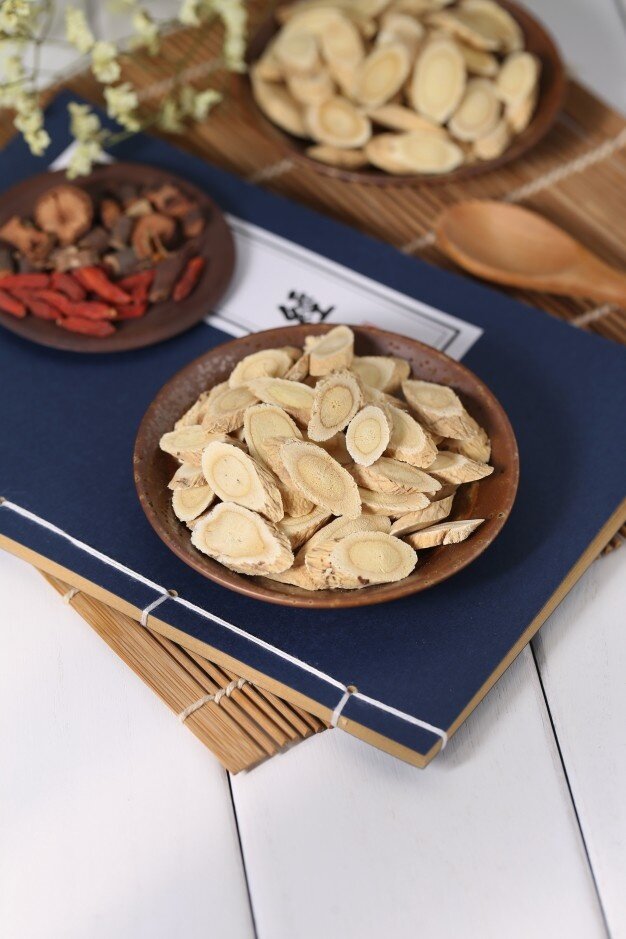Breaking down a research report co-authored by Dr. Jennifer Cruz of Eacuwell
Key takeaways:
Dr. Jennifer Cruz is the co-author of a research report about how Astragalus polysaccharides can promote remyelination to treat multiple sclerosis (MS).
Studies have recognized that promoting remyelination could be an effective treatment for MS.
Astragalus polysaccharides, a bioactive component of the medicinal Chinese herb Astragalus membranaceus, helped prevent demyelination in mice.
Astragalus polysaccharides may provide hope for patients with MS.
Multiple sclerosis (MS) is an autoimmune condition that affects 2.5 million people worldwide and is marked by severe demyelination within the central nervous system. Demyelination refers to a loss of the fatty tissue that surrounds and protects the nerves throughout the body. When this occurs, it can cause neurological issues, as well as cognitive and behavioral problems.
Dr. Jennifer Cruz from Eastern Acupuncture and Wellness recently co-authored a research report on how remyelination, or the restoration of the lost myelin, can be enhanced by the Chinese medicine herb Astragalus polysaccharides. This article will break down how it works and if Astragalus polysaccharides can potentially treat MS.
How it works
More and more studies have recognized that promoting remyelination could be an effective treatment for MS. The death of oligodendrocytes, the myelinating cells of the central nervous system, is the essence of the demyelination process associated with MS. Because oligodendrocytes are too mature to go through cell division on their own in this condition, the remyelination process is incomplete in MS and needs assistance to induce differentiation and promote remyelination. This is where Astragalus polysaccharides comes in.
What is Astragalus Polysaccharides?
The medical Chinese herb Astragalus membranaceus has been used to treat colds, fatigue, anorexia, and diarrhea for over 2,000 years. Very importantly, Astragalus membranaceus has been shown to successfully alleviate immune response animal models of MS in mice. Its main bioactive component, known as Astragalus polysaccharides, has been reported to contain anti-inflammatory, anti-viral, and antioxidant properties, particularly the immunomodulatory property. Within this research study, it was discovered that these properties within Astragalus polysaccharides helped prevent demyelination in these mice.
Research study testing
The findings that Astragalus polysaccharides can help prevent demyelination in mice proved to be a remarkable discovery and led to additional research for more conclusive results. Cuprizone models were used to find further information about the effects that Astragalus polysaccharides could have on potentially treating MS through remyelination. Cuprizone acts as a neurotoxin that disrupts the respiratory chain of oligodendrocytes, leading to severe demyelination in the brains of mammals. When cuprizone is removed within a certain period, remyelination occurs. The cuprizone model using mice provides ideal investigative elements for specific demyelination or remyelination research. For this study, a demyelination model with mice was used to investigate the effects of Astragalus polysaccharides on promoting remyelination in mice that are affected by cuprizone-induced demyelination.
Findings and results
The results showed great success. After five or six weeks of exposure, 50% of axons were wrapped in myelin sheath and 90% remyelination appeared, proving that treatment for MS using Astragalus polysaccharides could be possible. Certain tests were set up for the mice to test neurobehavioral improvements, such as pole climbing and beam walking, as well as immunohistochemistry. The results of these tests gradually improved in the cuprizone-induced mice group, concluding that the herb Astragalus polysaccharides can effectively relieve neurobehavioral dysfunctions and promote remyelination in cuprizone-induced demyelination in mice. Ideally, similar neurological improvements would be sought after in MS patients, making the results of this experiment highly successful for potentially treating this disease.
Learn more
The findings of this research study show that there may be hope for patients with MS since remyelination of the protective fatty tissue around the nerves can potentially be induced with the use of Astragalus polysaccharides.
For more information about the powerful effects of Chinese medicine herbs or to learn more about Dr. Jennifer Cruz’s studies and research, contact us today.





